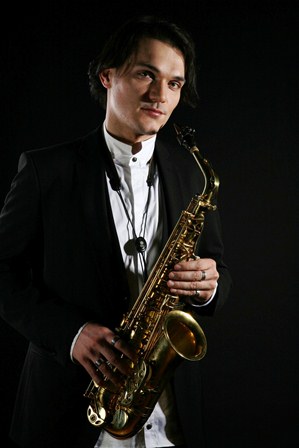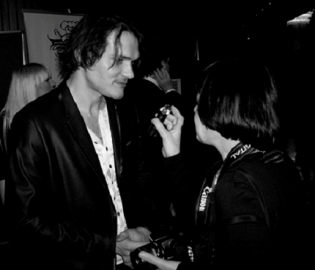
Dear visitors, music friends, saxophone lovers!
Wellcome in the world of saxophone!
With this homepage and indeed as a lifelong passion, I would like to hone in on the instrument saxophone, and present how it was imagined and designed by its inventor Adolphe Sax, as well as how composers Berlioz, Meyerbeer, Rossini, Puccini, Massanet, Bizet and many others from this period experienced and listened to the instrument--and not how the saxophone is however widespread in the contemporary consciousness.
As a saxophone player I have often found that as soon as I introduce myself as such, an immediate and automatic association formed with rock' n roll, jazz, or pop musicians.
This image of the saxophone, which finds itself deeply imbedded in the consciousness of the majority of people, differentiates itself entirely from the original ideal sound toward which the saxophone aspired however. The quality of jazz or pop saxophone as such is not going to be topic of discussion here, for, it allows for only two possibilities of the instrument in all the forms of music.
Is it not regrettable that the ideal of Adolphe Sax is entirely unknown?
One of the main differences between the jazz and the classical saxophone lies in the following, that jazz musicians belong to the category of brass instrument, while it is figured as a woodwind in the classical world. The embouchure, mouthpiece, reeds, and the way in which they are held and played, are each and every way totally different; indeed the sound is also different altogether. (As you can hear in the background ;-)
Nowadays, where there exists a preponderance of literature on the classical saxophone, it is definitely high time that the saxophone be brought from this 'metamorphosed' condition back to its original and primary ideal, as it was perceived by all the highest-class and respected musicians directly after its discovery--the saxophone, which would appear for so many in a totally 'new' light.
The instrument saxophone and its tones sounded quite different in Sax's time, Giacomo Rossini meinte damals, claimed at the time that he had never heard a more beautiful sound than that of the saxophone!
With its deep tones that sound so mysterious and celebratory, so resounding and powerful like an organ, the other tones come together in the higher register, soft, gentle, melancholic and sad, all the way to the area of the human voice, all the shades and nuances of the sound which, contrary to other instruments, can be modified much better.
This tone of the instrument saxophone, so original, excellent and unique with its natural rich tone color, can produce all levels and dynamic; from the intensive fortissimo to the last pianissimo grade, which borders on pure calm.
With all its characteristics and possibilities, the saxophone has deserved to have its place alongside all the other symphonic instruments; it is the most interesting instrument of the 20th and 21st centuries and of our future, which constantly arouses the interest of composers in all areas of music.
